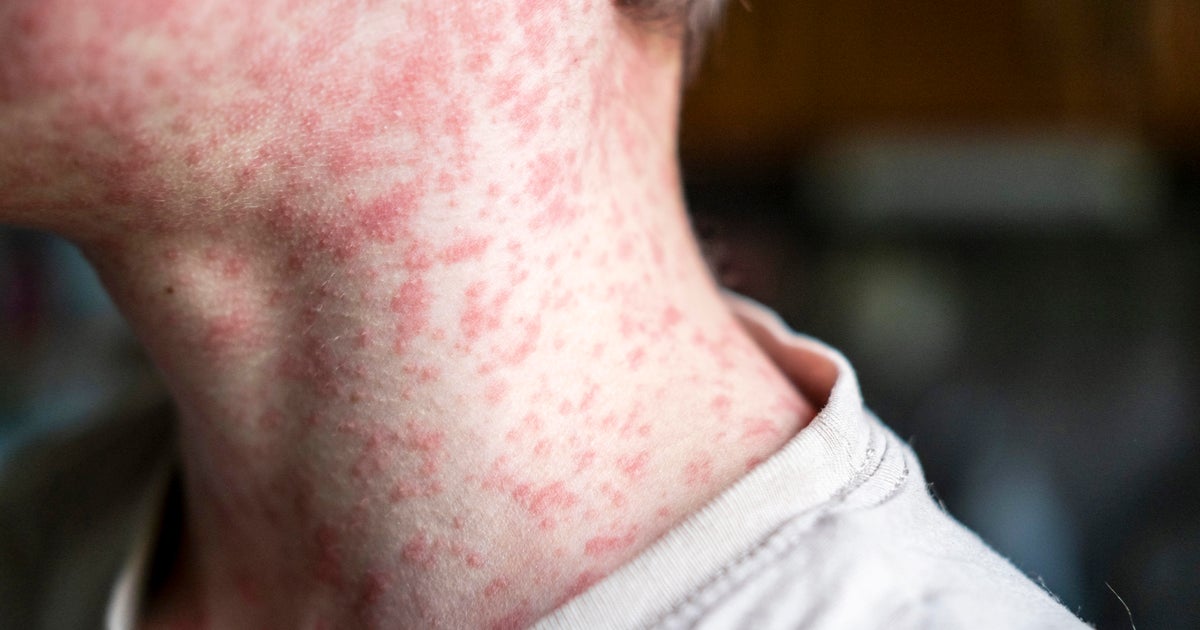White House touts efforts to expand COVID test-to-treat sites amid latest wave
The White House said Thursday it will begin launching a handful of new efforts to expand so-called "test-to-treat" sites to prescribe and dole out pills to treat COVID-19, starting with the country's first "federally-supported" location in Rhode Island.
The Biden administration said it will also "deploy clinical personnel" to some of Minnesota's state-run testing sites into test-to-treat locations over the coming days. New York and Illinois will also get a federally-supported test-to-treat site, the administration announced.
"There are now more than 2,500 Test-to-Treat locations across the country at local pharmacies and community health centers—up from 2,200 a month ago," the White House said.
The new efforts come amid a growing nationwide wave of COVID-19 cases that has led to surging hospitalizations among the oldest Americans.
Overall, the pace of new COVID-19 hospitalizations has accelerated for more than a month, especially among Americans ages 70 and older – the age group most vulnerable to severe disease and death. In several regions, the pace of new hospitalizations among these oldest Americans is now several times higher than even the worst days of the Delta variant surge last year.
Meanwhile, a months-long slowdown in COVID-19 deaths has now plateaued near 300 per day. Recent forecasts from the Centers for Disease Control and Prevention are now warning of a looming acceleration in lives claimed by disease, though federal officials say they hope widespread use of COVID-19 treatments like Pfizer's Paxlovid pills will curb the coming wave.
"I think that is actually a really important reason why, despite this very substantial increase in infections, we have not seen a commensurate increase in deaths. We have seen hospitalizations rise but, again, not as much as one would have expected at this point," Dr. Ashish Jha, the White House's top COVID-19 official, told reporters last week.
The pace of new COVID-19 deaths has also yet to increase in nursing homes, amid weeks of climbing case rates among residents. Data published this week shows that even in New England, the region that has recorded the worst rates of new infections for the current wave so far, weekly deaths remain a fraction of those seen during the Delta variant waves.
"Death numbers continue to be low. Obviously, we want to continue to drive that lower," Jha said.
Increasing use of Pfizer's Paxlovid pills
The White House said Thursday that the weekly pace of Americans taking oral antiviral pills has climbed from 27,000 prescriptions a week to more than 182,000.
Federal data published this week now tallies more than 830,000 courses of Paxlovid administered in total, out of nearly 2.5 million ordered for distribution.
Increased use of the drug has generally followed where cases have climbed around the nation, senior health officials told reporters last week.
In addition to expanding supply and access to COVID-19 drugs, federal officials have urged providers to generously interpret eligibility for the pills, which can only be given to Americans with at least mild COVID-19 symptoms who are considered at-risk of severe disease.
"Risk factors have changed over time, and additional risk factors [such as being unvaccinated or having not received a booster] could be considered," notes a checklist published by the Food and Drug Administration for prescribers.
However, some doctors have also voiced concerns over wider use of the antiviral drug amid reports of so-called "rebound" symptoms following use of Paxlovid, which might raise the risk of the virus evolving resistance to the pills.
The CDC issued a health alert on Tuesday warning of the rebound cases, when patients initially seem to recover after finishing off a five day course of Paxlovid only to see symptoms and positive test results later return.
Officials have said that there is no evidence for now backing additional or longer rounds of Paxlovid or other drugs for these cases. The National Institutes of Health is in talks with Pfizer for potential studies of the question.
In its alert, the CDC agency urged providers to have their patients restart isolation and mask-wearing to avoid transmitting the virus. Reported symptoms from rebound cases have largely been mild, the agency said.
Doctors have also voiced concerns over patients still facing difficulty accessing the drugs.
For example, some of the country's largest telehealth providers, including Teladoc Health and Cigna subsidiary MDLIVE, told CBS News earlier this month that they had policies against doctors prescribing the antiviral drugs through virtual visits.
A spokesperson for the FDA declined to comment on the issue.
"Due to current FDA reporting requirements and safety guidelines for patients with pre-existing kidney and liver problems, our doctors cannot prescribe antivirals," MDLIVE spokesperson Ann Smith said.



